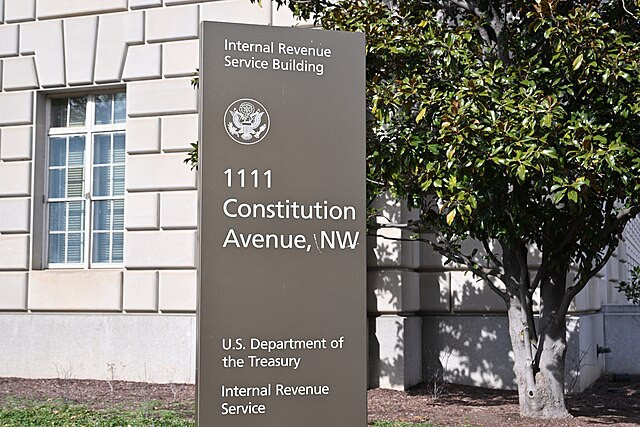The Internal Revenue Service has lost nearly one-third of its auditors in just three months, driven by aggressive workforce reductions spearheaded by Elon Musk's Department of Government Efficiency (DOGE), according to a recent Treasury watchdog report. Approximately 3,600 revenue agents exited the agency by March 2025, intensifying concerns about the government's ability to combat tax evasion among wealthy individuals and large corporations.
DOGE, a Trump administration initiative led by Tesla CEO Elon Musk, has aimed at cutting federal employment to reduce government spending, particularly targeting the IRS. Musk stated during Tesla's April 22 earnings call that DOGE's workforce reductions were vital to "addressing waste and fraud," adding it would "get the country back on track."
However, tax experts warn that these cuts undermine crucial IRS enforcement capabilities. Emily DiVito, senior adviser on economic policy at Groundwork Collaborative and former U.S. Treasury policy adviser, noted: "You lose the very staff trained to keep high-end taxpayers and corporate taxpayers in compliance." She emphasized the potential behavioral changes among taxpayers who may perceive fewer risks associated with tax evasion.
In fiscal year 2023 alone, IRS auditors recommended an additional $32 billion in tax assessments, illustrating the substantial revenue that audits generate. Every dollar spent auditing the top 0.1% of earners yields approximately $26 in revenue, according to advocacy group Better IRS.
The Treasury Inspector General for Tax Administration (TIGTA) highlighted the disproportionate impact on IRS auditors compared to the broader workforce cuts, which reduced total IRS staffing by around 11%. The watchdog's findings underscore the vulnerability of high-value audits, specifically those conducted by the Large Business and International (LB&I) division, responsible for scrutinizing wealthy taxpayers and corporations with assets exceeding $10 million.
DOGE's controversial workforce strategy involves mass layoffs, an indefinite hiring freeze, and voluntary resignation incentives. Approximately 7,300 probationary IRS workers were terminated, over 4,100 accepted Musk's "Fork in the Road" resignation offer, and another 13,100 employees opted for buyouts. The Yale Budget Lab predicts these staffing reductions could cost the government $159 billion in net revenue over a decade, potentially escalating to $1.6 trillion if compliance significantly deteriorates.
Former IRS Commissioner John Koskinen criticized DOGE's logic, questioning: "If you're interested in the deficit and curbing it, why would you cut back on the revenue side?" Critics further argue that the reduction in IRS auditors, particularly skilled specialists needed to unravel complex corporate tax schemes, could lead to incomplete or prematurely closed audits, exacerbating the federal deficit.
Treasury officials defended the cuts as necessary corrections following what they termed "wasteful Biden-era hiring surges." A Treasury spokeswoman asserted: "The roll back...and consolidation of critical support functions are vital to improve both efficiency and quality of service."
Nevertheless, DOGE's projected savings-claimed at $165 billion-have been challenged. An analysis by the Partnership for Public Service indicates that actual net savings might be as low as $30 billion after factoring in productivity losses, rehiring costs, and increased litigation stemming from mass layoffs.






